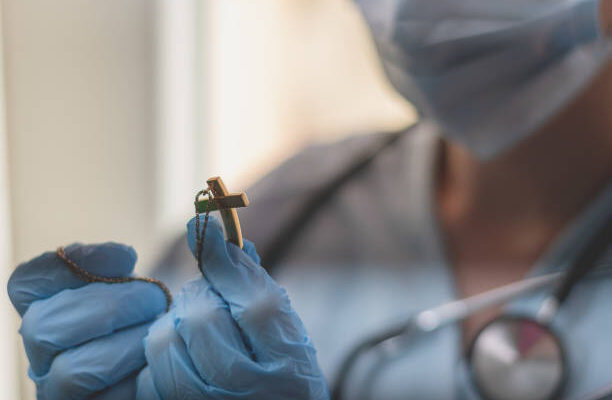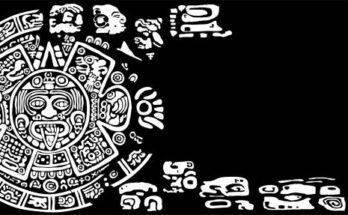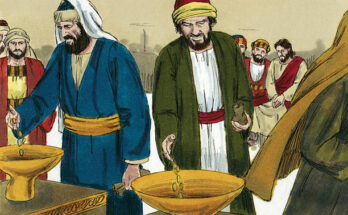Religion and medicine, two seemingly distinct realms, have a long and intertwined history that extends across cultures and civilizations. While modern medicine relies heavily on scientific advancements and evidence-based practices. The influence of religious beliefs on health and healing cannot be overlooked. This article explores the dynamic relationship between religion and medicine. Examining how faith traditions shape attitudes towards health. Influence medical practices, and contribute to a holistic approach to well-being.
Religious Beliefs and Health
 (Photo from iStock)
(Photo from iStock)
One of the fundamental ways in which religion intersects with medicine is through the influence of beliefs on individual health behaviours. Various faith traditions emphasize the importance of maintaining physical health as a means of fulfilling one’s spiritual duties. For example, many religions promote dietary guidelines. Such as kosher and halal food practices, and advocate for practices like fasting and abstaining from certain substances.
Moreover, faith can serve as a source of comfort and resilience in the face of illness. Numerous studies have explored the correlation between religious beliefs and positive health outcomes. For instance, research suggests that individuals who actively participate in religious communities tend to experience lower levels. Of stress and depression, which can positively impact their overall health.
Faith Healing and Medical Practices
Faith healing, a practice rooted in the belief that spiritual forces can contribute to physical healing, is another aspect of the intersection between religion and medicine. While faith healing spans various traditions, it is particularly prominent in Christianity. Where some denominations emphasize the laying on of hands, prayer. And anointing with oil as means of invoking divine intervention for healing.
The relationship between faith healing and conventional medicine is complex. In some cases, individuals may solely rely on spiritual practices for healing. While others may integrate both faith-based and medical approaches. The tension between faith healing and evidence-based medicine raises ethical questions. And challenges for healthcare professionals who must navigate the intersection of religious beliefs and medical practices.
Religious Institutions and Healthcare
Religious institutions have historically played a significant role in the provision of healthcare services. Many hospitals and healthcare organizations around the world were founded by religious groups. With a mission to care for the sick and vulnerable. Even today, several healthcare systems maintain affiliations with religious traditions. Influencing the ethos and values of the institutions.
Religious hospitals often incorporate a spiritual dimension into patient care. This can include chaplaincy services, prayer rooms, and accommodations for religious practices. For patients who draw strength from their faith, the integration of religious elements in healthcare settings can contribute to a more holistic and patient-cantered approach.
Cultural Competence in Healthcare
 (Photo from iStock)
(Photo from iStock)
Understanding the intersection of religion and medicine is essential for healthcare professionals to provide culturally competent care. Cultural competence involves recognizing and respecting the diverse beliefs and practices of patients, ensuring that healthcare services are inclusive and responsive to individual needs.
Healthcare professionals must be sensitive to the religious beliefs of their patients and recognize how these beliefs may impact their health decisions. This requires effective communication, openness, and a willingness to engage with patients from diverse religious backgrounds. Cultural competence fosters trust between healthcare providers and patients, ultimately enhancing the quality of care.
End-of-Life Care and Religious Perspectives
Religious beliefs often shape individuals’ views on end-of-life care, death, and dying. Different faith traditions have varying perspectives on issues such as euthanasia, assisted suicide, and the withdrawal of life-sustaining treatments. For example, some religions emphasize the sanctity of life and advocate for the preservation of life at all costs, while others may prioritize the quality of life and allow for a more patient-cantered approach to end-of-life decisions.
Navigating these complex ethical and religious considerations is a crucial aspect of providing compassionate and patient-cantered end-of-life care. Healthcare professionals must be aware of and sensitive to the diverse perspectives within their patient population, ensuring that decisions align with the values and beliefs of the individuals and their families.
Medical Ethics and Religious Values
The field of medical ethics grapples with questions that often intersect with religious values. Issues such as abortion, genetic testing, and organ transplantation can be deeply influenced by religious beliefs and moral frameworks.
Religious perspectives can contribute valuable insights to ethical debates in medicine. For example, discussions about the ethical implications of emerging technologies, such as gene editing, often involve considerations of the sanctity of human life and the moral responsibility to act as stewards of creation, concepts deeply rooted in various religious traditions.
Holistic Healthcare: Integrating the Mind, Body, and Spirit
 (Photo from iStock)
(Photo from iStock)
The integration of religion and medicine can contribute to a more holistic approach to healthcare that recognizes the interconnectedness of the mind, body, and spirit. Holistic healthcare emphasizes the importance of addressing not only physical symptoms but also the emotional, social, and spiritual aspects of an individual’s well-being.
Incorporating spiritual care into medical practices acknowledges that health is a multifaceted concept. For some patients, the healing process goes beyond the physical body and involves finding meaning, purpose, and hope in the face of illness.
Challenges and Opportunities
While the intersection of religion and medicine presents opportunities for a more comprehensive and patient-cantered approach to healthcare, it also poses challenges. Striking a balance between respecting religious beliefs and upholding medical standards, ensuring cultural competence.
Moreover, as societies become more diverse, healthcare systems must adapt to meet the needs of individuals from various religious backgrounds. This includes training healthcare professionals to be culturally competent, developing policies that respect religious diversity, and fostering an inclusive environment within healthcare institutions.
Conclusion
The intersection of religion and medicine is a complex and multifaceted terrain that encompasses individual beliefs, healthcare practices, and ethical considerations. Recognizing the influence of religious values on health behaviours, understanding the role of faith healing, and navigating the involvement of religious institutions in healthcare are crucial aspects of providing patient-cantered and culturally competent care.
As healthcare professionals and societies at large grapple with the challenges and opportunities presented by the intersection of religion and medicine, a commitment to open dialogue, education, and respect for diverse perspectives is essential.
Reference:
BMJ
Want to know about creation of the world, click on the link below:
How Can Religion Be Created? Exploring the Origins and Evolution




